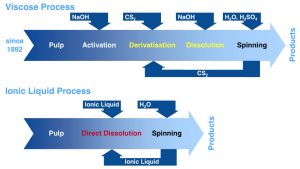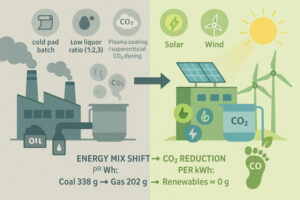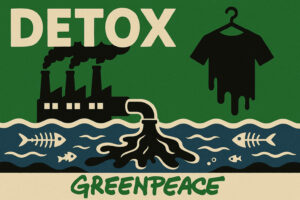Smart textiles – hope for the European textile industry for a better future?
In the last 10 years 50% of jobs were lost in the European textile industry[1], as a result of manufacturing shifting to emerging markets, in particular to China and South Asia.

Functional, technical textiles and smart textiles are a big hope for the European textile industry, for a better future. Technical textiles in the EU, a market of 45 bio €, are growing by 3.2% per annum (CAGR[2]), opposite a declining trend of the European textile industry of 4%, since 2000[3]. Globally the market is 127 bio USD (CAGR 3.8%). In Germany, technical textiles have grown since the middle of the 1990s by 40%, while in the same period the production output of the textile industry has declined by 70%, and more than 50% of jobs have been lost, according to Deutsche Bank research[4]. Therefore, technical textiles have a significant meaning for Europe, and for Germany in particular – Germany is considered as the global market leader in technical textiles4.
Of the technical textiles segment, smart textiles are one of the technically highest sophisticated segments, and most attractive for future growth. The market size of smart textiles is estimated at 1.1 bio USD in 2010, with a impressive CAGR of 30%, claimed in a vision paper of Systex[5]. Assuming the number is correct, a growth rate of 30% would imply a market of 2.5 bio USD, already by 2013. The number is still small, compared with a total global market of 127 bio USD for technical textiles, yet the growth prospective is enormous.
Technical textiles and smart textiles are differentiated as follows
“Technical textiles: Materials and products intended for end-uses other than non-protective clothing, household furnishing, and floor covering, where the fabric or fibrous component is selected principally but not exclusively for its performance and properties as opposed to its aesthetic or decorative characteristics” (Textile Institute Manchester)[6]
“Textiles ….intended for clothing or domesticated use (curtains, furnishing, flat linen, etc) are rather qualified as Functional Textiles (Boldoduc SAS)[7].
„Smart or intelligent textiles are functional textiles which interact with their environment by responding to it“ (Systex )” [5].
To read the full article, please login. The full content of this article and all premium articles is available exclusively for site members.
Site membership is free. If you are an existing user, please login. New users may register below.



